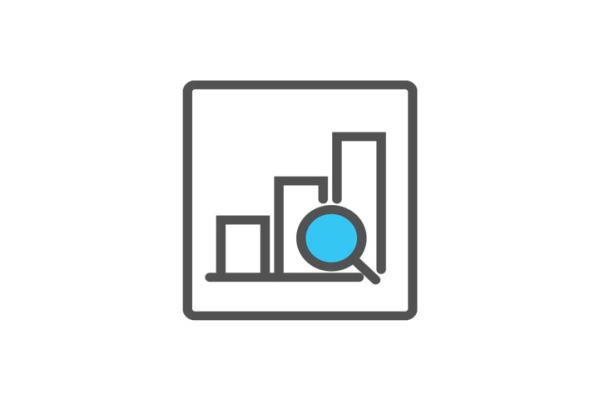High level event
On 16 June, the rapporteurs of the 4 workstreams of the structured dialogue initiative (robust supply chains, critical medicines, vulnerabilities and dependencies, and innovation) presented the key messages and preliminary outcomes of their work to Vice President Schinas, Commissioner Kyriakides and Commissioner Breton at the high level event.
Along with members of the College, high-level speakers at the event included:
- Portuguese and Slovenian Secretaries of State from Ministries of Health (representing the outgoing and incoming Presidency),
- High level representatives of the chemicals and pharmaceutical industry (companies including innovative and generic perspective),
- Representatives of patients and consumers (EPF [European Patients Forum], BEUC [The European Consumer Organisation]), as well as representatives of healthcare professionals (EAHP [hospital pharmacists], the Standing Committee of European Doctors (CPME))
- Heads of Medicines Regulatory Agencies from Slovenia and Ireland;
All contributors to the structured dialogue initiative were invited to attend.
The question on supply security is of high interest at political and technical level. The purpose of the meeting was to provide update on the progress of work within the structured dialogue and present the preliminary conclusions.
The structured dialogue initiative
The mandate given by the Pharmaceutical Strategy was to initiate a structured dialogue to strengthen the resilience of pharmaceutical supply chains and ensure the security of supply of medicines, without compromising the affordability of medicines.
It did so by bringing together actors in the pharmaceuticals manufacturing value chain, public authorities, patient and health non-governmental organisations and the research community.
It aimed to gain a better understanding of the functioning of global pharmaceutical supply chains through the input of stakeholders; to identify the causes and drivers of different potential vulnerabilities, including dependencies, threatening the supply of critical medicines, active pharmaceutical ingredients (APIs) and raw materials.
Further, the ambition is for the structured dialogue to put forward a set of possible measures to address the identified vulnerabilities and formulate policy options to be considered by the Commission and other authorities in the EU to ensure the security of supply and the availability of critical medicines, APIs and raw materials.
Any potential measures will also comply with EU competition and World Trade Organization (WTO) rules.
Focus areas of phase I
Across 4 workstreams, the operational groups will work together to present detailed information on the functioning of global supply chains and identify different potential vulnerabilities and their causes, including dependencies threatening the supply of critical medicines. The 4 workstreams will be coordinated to run in parallel or sequentially, to ensure efficiency.
This data collection, analysis and sharing of perspectives, will inform the scope and understanding of the key issues. Based on agreed deliverables, each workstream will produce a written report.
- Robust supply chain
The purpose of this workstream is to define a robust supply chain, including analysis of the key criteria to achieve a robust supply chain, with consideration of the need for agility, flexibility and resilience.
Where challenges in achieving robustness are identified, these should be explored to determine if they are shared or if solutions have already been recognised.
- Critical medicinal products
The purpose of this workstream is to consider available methodologies and criteria and identify medicinal products that are considered to be critical to public health and discuss methodology to trace EU manufacturing capacity for those critical products.
- Vulnerabilities
The purpose of this workstream is to reflect on the causes of vulnerabilities, considering at what stage in the supply chain they occur and if they differ for different types of medicines.
The discussion should include consideration of disruption challenges most frequently observed/ that pose the greatest threat to supply, to identify the drivers of these vulnerabilities, including dependencies. This workstream will also assess the financial impact associated with addressing the challenges and drivers.
- Innovation
The purpose of this workstream is to identify the modernisation needs, including identification of priority R&D areas, to ensure supply chains are adequately robust and resilient to meet EU public health need. This includes innovation needed to address challenges in deployment of new measures and maintain competitive production capacity in the EU.
This reflection should integrate considerations of green and digital transition requirements, as well as modernisation of manufacturing processes.
The process
The Structured Dialogue initiative was launched on 26 February 2021. This high-level event gathered Vice-President Margaritis Schinas, Commissioner Stella Kyriakides and Commissioner Thierry Breton.
The purpose of this event was to discuss the participants’ commitment to the objective of increasing the EU’s resilience and also to discuss their contribution to the process of the structured dialogue.
Stakeholders from the pharmaceutical industry, representatives of healthcare professionals and patients, Member States, including national competent authorities with responsibility for medicines authorisation, showed interest to contribute to the structured dialogue during the recruitment phase that followed the launch event.
Please consult the list of organisations providing input in the structured dialogue initiative. The operational work started with a scoping meeting on 25 March.
The participants accepted the working rules for the operational phase.The participants declared interest in contributing to the workstream of their choice (some to more than one). Rapporteurs and co-rapporteurs of each workstream were selected and agreed by participants at the scoping meeting.
The task of rapporteurs is to ensure the organisation of the work within the workstream as well as ensure that the process is inclusive and that the record captures all views presented by stakeholders.
The workstreams were asked by the Commission to provide knowledge and evidenced based data to provide a better understanding of the functioning of pharmaceutical supply chains. There have been weekly/ bi-weekly meetings of each workstream with extensive contribution and collaboration of the participants.
The discussion has focused on the industrial dimension of supply security (organisation of supply chains, enablers of their robustness depending on the production types, evolution of the situation in the supply chains throughout the last decades, critical manufacturing capacity in the EU to ensure supply at all times, main vulnerabilities depending on the stage in the supply chain, innovation needs to maintain robust supply chains and competitive manufacturing in the EU).
One of the workstreams has discussed the criteria and methodology to establish list of critical medicines.
In addition to meetings organised by rapporteurs/ co-rapporteurs the Commission has organised and hosted two rounds of coordinate meetings in April and June 2021.
The challenge of providing sound evidence to justify all aspects of the problem analysis is acknowledged and has been highlighted by the Commission on a number ofoccasions. It is key that the process provides actionable outcomes that will inform future policy measures, while capturing the perspectives of all relevant stakeholders.
A high-level meeting was held in September 2021 to reflect on the information provided in the Structured Dialogue. Following that meeting, and taking into account other ongoing initiatives and actions, the Commission has published a Staff Working Document on Vulnerabilities of the global supply chains of medicines – Structured Dialogue on the security of medicines supply.
The purpose of this Staff Working Document is:
- to present the main findings of the Structured Dialogue that should be considered in the analysis of supply security.
- to map areas of focus at EU level, including both new and ongoing actions, for consideration and to inform further actions to improve the security of supply and the availability of critical medicines, APIs and raw materials.
Since this work was completed, the Commission has continued its reflection considering the stakeholder feedback from the Structured Dialogue, particularly on an EU list of critical medicines and identification of vulnerabilities in pharmaceutical supply chains.
This has been particularly valuable in the reform of the pharmaceutical legislation, whereby policy options were formulated, and actions have been put forward to strengthen the continuity and security of supply in the EU, particularly for the most critical medicines to health systems.
Background
The enhanced resilience of the EU as regards pharmaceutical supplies is one of the objectives of the Pharmaceutical Strategy.
The strategy recognises that achieving strategic autonomy while preserving an open economy is a key objective of the Union. It creates actions to respond to the calls of the European Parliament as well as EU countries to understand and address those aspects that impact the resilience of the whole pharmaceutical manufacturing chain, starting with raw materials, intermediates, active pharmaceutical ingredients and including finished dosages forms.
The Pharmaceutical Strategy contributes to the Industrial Strategy for Europe of March 2020. The Industrial Strategy recognises the importance of pharmaceuticals for EU security and autonomy.
The COVID crisis
- highlighted the need for EU resilience
- underlined the importance of solidarity, enhanced cooperation at all levels and between the relevant private and public actors
- stressed the need for a clear overview of innovative and sustainable industrial capacities in the EU, including possibilities for flexible production and conversion of production, as well as identification of potential alternatives
- stressed the importance of a well-functioning internal market and open international borders for trade
The reflection on the EU security of medicines supply takes into consideration the EU Pharmaceutical Strategy, the Industrial Strategy and trade policy.





